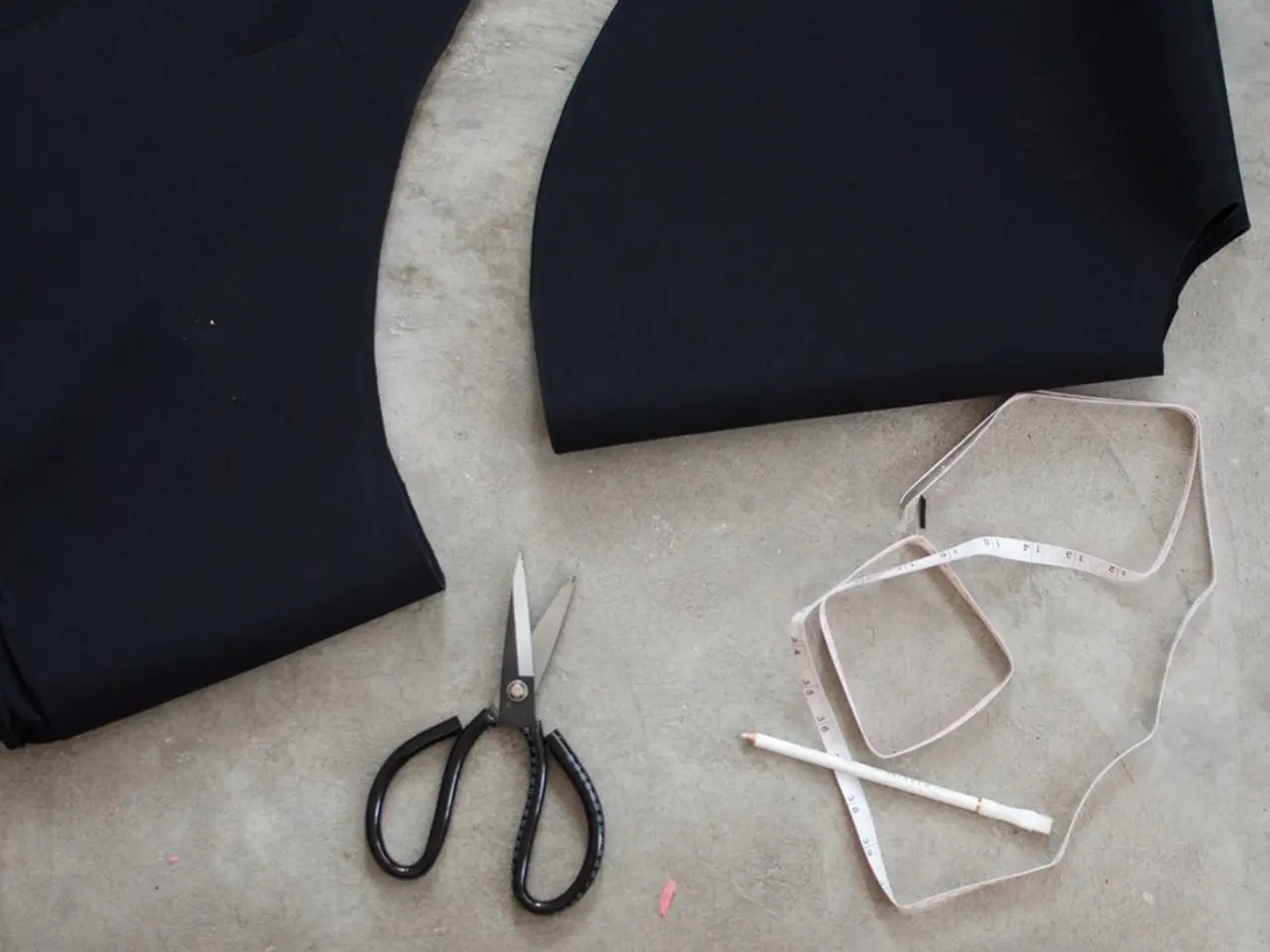Quick clean-up solution: 15-minute cleaning strategy to consider when pressed for time
Decluttering: A Pathway to Improved Well-being
Decluttering has emerged as a powerful tool for enhancing both physical and emotional well-being. Debora Robertson, a renowned decluttering expert, advocates for the practice as a means of reducing stress and anxiety, improving focus, and boosting overall psychological well-being.
In her book, "Declutter: The get-real guide to creating calm from chaos," Robertson presents 10 commandments for effective decluttering. These include the importance of rest, nutrition, and hydration, organizing before buying, and giving oneself permission to do things imperfectly. One of her most notable commandments is to keep going, emphasizing the significance of persistence in the decluttering process.
Robertson also recommends decluttering in bursts of 15 minutes. This approach, she suggests, can help avoid overwhelm and make the process more manageable. Moreover, she advises against scheduling too much for the time available, as it can lead to stress and frustration.
Clutter, on the other hand, has been linked to increased stress hormones, fatigue, difficulty concentrating, low mood, and impaired psychological sense of home. Researchers at UCLA's Centre on Everyday Lives and Families (CELF) have identified a direct link between the stress hormone cortisol and clutter.
Juliet Landau-Pope, a leading declutter coach, defines clutter as surplus stuff that gets in the way, both materially and metaphorically. She advises setting positive goals, taking it step by step, celebrating progress, and not being afraid to ask for help when decluttering.
Practical tips for effective decluttering include starting small, adopting the "One-In One-Out" rule, setting clear goals and timelines, making mindful decisions, creating functional organization systems, seeking support when needed, maintaining clutter-free spaces regularly, and sorting out digital clutter.
Decluttering aligns with mindful living by releasing emotional burdens tied to possessions, aiding mental calmness and clarity. Physically, it reduces hazards and makes daily activities and cleaning easier.
Spring, officially starting on March 20, is a perfect time to embark on a decluttering journey. Robertson's own decluttering efforts resulted in a more organized and pleasing home, transforming her life in the process.
Other decluttering tricks suggested by Robertson include hanging tote bags on doors and putting unwanted items into them as they are encountered throughout the house, completing tasks and avoiding unfinished projects, and sorting out digital clutter, such as emails, by deleting junk mail, sorting the desktop into clearly marked folders, and scanning and shredding unnecessary paperwork.
In conclusion, decluttering is about focusing on what really matters to you and making active decisions about what belongs in your life. It is a journey towards a simpler, more organized, and healthier lifestyle.
[1] Robertson, D. (2021). Declutter: The get-real guide to creating calm from chaos. Penguin Books. [2] Landau-Pope, J. (2019). The Joy of Less: A Minimalist Living Guide: How to Declutter, Organize, and Simplify Your Life. Workman Publishing Company. [3] Deng, X., & Neisser, U. (2014). Mindful Possessions: The Psychology of Owning and the Lessons of Mindfulness. Oxford University Press. [4] Levitin, D. J. (2014). The Organized Mind: Thinking Straight in the Age of Information Overload. Plume. [5] Schwartz, B. (2004). The Paradox of Choice: Why More is Less. Ecco.
- Decluttering, as advocated by Robertson, encompasses fashion-and-beauty, food-and-drink, home-and-garden, relationships, pets, travel, cars, and shopping items, encouraging the intentional reduction of possessions to focus on what truly matters.
- In her book "Declutter: The get-real guide to creating calm from chaos," Robertson emphasizes the importance of leading a mindful lifestyle, highlighting the connections between decluttering and mental health, relationships, and even leisure activities like travel and hobbies.
- Effective decluttering does not only apply to physical spaces but extends to digital realms as well, such as sorting out emails, organizing files on computers, and managing pet photos, all of which can contribute to a less overwhelming lifestyle.
- By incorporating Robertson's decluttering practices, individuals can work towards creating a well-rounded lifestyle that values simplification, mental clarity, and emotional well-being, ultimately improving their overall wellness.






